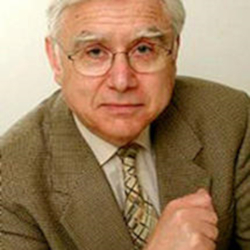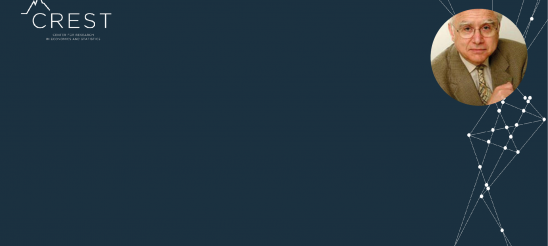Marion Leroutier, chercheuse au CREST et enseignante à l’ENSAE Paris, voit ses travaux récents mis à l’honneur dans Le Monde et Libération. En collaboration avec Ondine Berland (London School of Economics) elle publie une étude inédite sur les différences d’empreinte carbone entre les hommes et les femmes en France.
Le constat est clair : les femmes émettent en moyenne 26 % de CO₂ de moins que les hommes. Ce différentiel provient principalement de deux postes de consommation :
-
La viande rouge, consommée plus fréquemment par les hommes ;
-
La voiture, utilisée de façon plus intensive et souvent pour des trajets plus longs.
Mais ces écarts ne sont pas uniquement liés aux préférences individuelles : les rôles sociaux, les différences biologiques et d’insertion sur le marché du travail y jouent un rôle structurant. L’étude permet ainsi d’éclairer les liens entre choix de consommation, répartition des ressources au sein des ménages, et responsabilité environnementale.
Ces résultats posent des questions cruciales pour la justice climatique et les politiques publiques : comment prendre en compte les inégalités sociales et de genre dans la transition écologique ? Et comment concevoir des mesures efficaces et équitables ?
📰 À lire dans :
Le Monde, Libération, Economie Matin et le Journal de France 2 (minute 25), Le Nouvel Obs, ConsoGlobe, TF1, France Info
Pierre Boyer publie sur les leviers budgétaires pour financer la Défense nationale
Pierre Boyer, chercheur au CREST et professeur à l’École polytechnique, signe un article dans le numéro 170 (mai 2025) de la Revue française de finances publiques, intitulé « Quels leviers pour assurer le financement de la Défense nationale ? ».
Alors que les enjeux de souveraineté et de sécurité nationale sont au cœur des débats publics, l’article explore trois leviers fondamentaux pour garantir un financement crédible et soutenable des dépenses de défense :
-
La fiscalité, à travers le prisme du consentement à l’impôt, des limites de rendement fiscal et du contexte politique ;
-
La dette publique, en tant qu’outil d’étalement des efforts budgétaires via la pluri annualité et les lois de programmation ;
-
L’évaluation des politiques publiques, encore peu développée dans le secteur de la défense, mais essentielle pour garantir l’efficacité de la dépense.
Pierre Boyer insiste sur l’importance de la transparence, de la soutenabilité budgétaire et de l’investissement dans l’évaluation pour renforcer la légitimité des choix publics en matière de défense. Son analyse contribue à alimenter une réflexion économique rigoureuse sur un sujet souvent réservé aux sphères stratégiques ou militaires.
📖 L’article est à retrouver dans la Revue française de finances publiques, n°170 : site de l’éditeur.
Explaining the Dynamics of the Gender Gap in Lifetime Earnings
CREST Working Papers Series No. 2025-06
by Bertrand Garbinti, Cecilia Garcia-Penalosa, Vladimir Pecheu and Frédérique Savignac
Hommage à Claude Henry, fondateur du Laboratoire d’économétrie de l’X

Le professeur Claude Henry, éminent physicien devenu économiste, est décédé le 17 avril 2025. Figure majeure de la recherche économique française, il a profondément marqué les domaines de l’économétrie, de la régulation publique et du développement durable.
Un parcours académique d’exception
Formé initialement en physique, Claude Henry a orienté sa carrière vers l’économie, intégrant l’École polytechnique où il a enseigné pendant plus de trente ans. Il y a fondé en 1970 le Laboratoire d’économétrie, qu’il a dirigé et transformé en un centre de recherche de renommée internationale. Ce laboratoire, devenu plus tard le Centre d’Économie de l’École polytechnique (CECO), a accueilli de nombreux chercheurs de renom, dont Jean-Jacques Laffont dans les années 1970.
Claude Henry a également occupé des postes de professeur à Sciences Po Paris et à l’université Columbia à New York. Ses recherches ont couvert un large éventail de sujets, allant des interactions faibles entre particules élémentaires aux équations différentielles avec discontinuités, en passant par les décisions en incertitude et l’économie des services publics.
Un engagement pour les politiques publiques et le climat
Membre du Conseil d’analyse économique de 1997 à 2002 sous le gouvernement de Lionel Jospin, Claude Henry a contribué à des réflexions majeures sur la fiscalité environnementale, la régulation des services publics et la propriété intellectuelle.
Son ouvrage Microeconomics for Public Policy: Helping the Invisible Hand (Oxford University Press, 1987) illustre son approche visant à éclairer les décisions publiques par l’analyse économique. En décembre 2006, une conférence internationale a été organisée en son honneur, reflétant son intérêt constant pour les politiques publiques.
Claude Henry a également été un fervent défenseur de l’action contre le changement climatique. Il a publié de nombreuses tribunes dans Le Monde appelant à des politiques environnementales ambitieuses et a coécrit avec Joseph Stiglitz des travaux sur la propriété intellectuelle et le développement durable.
Distinctions et héritage
Claude Henry était membre de l’Academia Europaea et Fellow de l’Econometric Society. Il a reçu la médaille d’argent du CNRS en 1991.
Son héritage perdure à travers ses nombreuses publications et l’influence qu’il a exercée sur des générations de chercheurs et de décideurs. Ses contributions continueront d’inspirer les efforts en faveur d’une économie au service du bien commun et de la transition écologique.
Pauline Rossi, pour le Figaro : “La découverte du déclin démographique ressemble à celle du changement climatique”
Pierre Rousseaux contribue à l’évaluation de la réforme de l’assurance chômage
Pierre Rousseaux, doctorant au CREST-GENES et affilié à l’Institut des Politiques Publiques (IPP), est co-auteur du rapport d’évaluation de la réforme du Salaire Journalier de Référence (SJR), pilier central de la réforme de l’assurance chômage mise en œuvre entre 2019 et 2021.
Intitulé “Réforme du salaire journalier de référence et trajectoires professionnelles“, ce rapport a été publié en avril 2025 dans le cadre des travaux du comité d’évaluation piloté par la Direction de l’Animation de la recherche, des Etudes et des Statistiques (Dares). Il analyse de manière rigoureuse les effets de cette réforme sur les droits à l’indemnisation, les comportements de recherche d’emploi, et les trajectoires professionnelles des demandeurs d’emploi.
Les auteurs mettent notamment en évidence que la réforme a entraîné une baisse de l’allocation journalière pour les personnes aux parcours discontinus, contrebalancée par un allongement de la durée d’indemnisation. A court terme, elle a aussi induit une hausse du nombre de jours travaillés, sans effets notables sur la qualité des emplois retrouvés.
Dans un contexte de réflexion sur une nouvelle réforme de l’assurance chômage, cette évaluation apporte un éclairage précieux sur les mécanismes en jeu et les arbitrages possibles entres incitations et protection.
👉 Lire le rapport complet
📄 Lire la synthèse
🔎 Page dédiée sur le site de l’IPP
Ce travail a été mené dans le cadre des travaux du Comité d’évaluation de la réforme de l’Assurance chômage initiée en 2019, et a bénéficié d’un financement de la Direction de l’animation de la recherche, des études et des statistiques (Dares) dans le cadre de l’appel à projets de recherche « Suivi quantitatif des effets de la réforme de l’assurance chômage pour les demandeurs d’emploi ».
Patricia Crifo, sur l’intégration des dimensions économiques et financières dans la transition écologique dans l’enseignement des futurs ingénieurs
Patricia Crifo, “Ingénieurs et transition écologique : adapter les formations aux enjeux de demain”
ID L’info Durable
31/03/2025
Prix Nobel d’économie : l’équilibre délicat entre la technologie, les institutions et le pouvoir
Contribution de Pierre Rousseaux à l’Investment Report 2024/2025 de la European Investment Bank (EIB)
Pierre Rousseaux, doctorant au CREST-GENES, signe une contribution dans l’Investment Report 2024/2025 de la Banque Européenne d’Investissement (BEI) (Encadré C, Chapitre 5).
Dans un contexte de tensions géopolitiques croissantes, les dépendances commerciales de l’Union européenne deviennent un enjeu stratégique majeur. La guerre en Ukraine, la montée du protectionnisme aux États-Unis et la concentration des chaînes de valeur en Chine exposent l’UE à des risques accrus de perturbations d’approvisionnement. Quels sont les produits et secteurs les plus vulnérables ? Quelles sont les dépendances critiques ? Comment renforcer la résilience européenne ?
Dans cette contribution, Pierre Rousseaux explore ces questions sur une période plus étendue que celle abordée dans son précédent travail coécrit avec Isabelle Méjean pour le CEPR – Centre for Economic Policy Research. Voici les principales conclusions issues de son analyse pour la BEI :
-
Les vulnérabilités sont de plus en plus concentrées sur les importations chinoises
La part de la Chine dans les dépendances commerciales de l’UE a significativement augmenté, tandis que celle des États-Unis et du reste du monde a diminué de 3 à 10 points de pourcentage. -
Les dépendances en amont des chaînes de valeur sont les plus risquées
Les vulnérabilités situées à plus de trois étapes du consommateur final représentent 49 % des produits critiques. Une rupture dans ces segments pourrait affecter l’ensemble des chaînes d’approvisionnement européennes. -
Certaines dépendances sont structurellement critiques pour l’industrie européenne
Les produits vulnérables se concentrent dans les secteurs de la chimie, des métaux et de la céramique — industries essentielles pour de nombreuses filières stratégiques. -
Ces vulnérabilités sont persistantes
41 % des dépendances commerciales identifiées avant la crise financière mondiale étaient encore présentes après celle-ci, et 35 % ont perduré à long terme, témoignant de leur caractère structurel et de la difficulté à s’en détacher. -
Sur les 5 381 produits importés par l’UE, le nombre de vulnérabilités identifiées varie selon les critères retenus : entre 359 (avec les critères les plus larges) et 29 (selon les cinq critères les plus restrictifs définis avec Isabelle Méjean). Bien que ce chiffre puisse sembler faible, il regroupe des produits à risque extrême, caractérisés par :
-
une forte concentration des fournisseurs hors UE
-
une très faible production au sein de l’UE
-
une capacité de substitution quasi inexistante en cas de choc
-
Pourquoi est-ce crucial ?
Identifier précisément les dépendances et leurs risques permet de concevoir des politiques ciblées : diversification des fournisseurs, relocalisation, investissements stratégiques… Ces enjeux dépassent la sphère économique : ils ont un impact direct sur la souveraineté industrielle et technologique de l’UE.
Pierre Rousseaux propose également une page dédiée à ce sujet sur son site, qui croise les résultats de son papier avec Isabelle Méjean et ceux réalisés pour la BEI. Elle s’adresse aux publics académique, statistique et politique, et permet d’explorer les vulnérabilités commerciales de l’UE de manière approfondie :
https://www.pierrerousseaux.com/eu-trade-dependencies
Consulter le rapport complet ici.
Électricité, eau, CO2 : pourquoi le Bitcoin est responsable de 95% de l’impact environnemental des cryptomonnaies
Julien Prat pour le média Vert
19/03/2025









